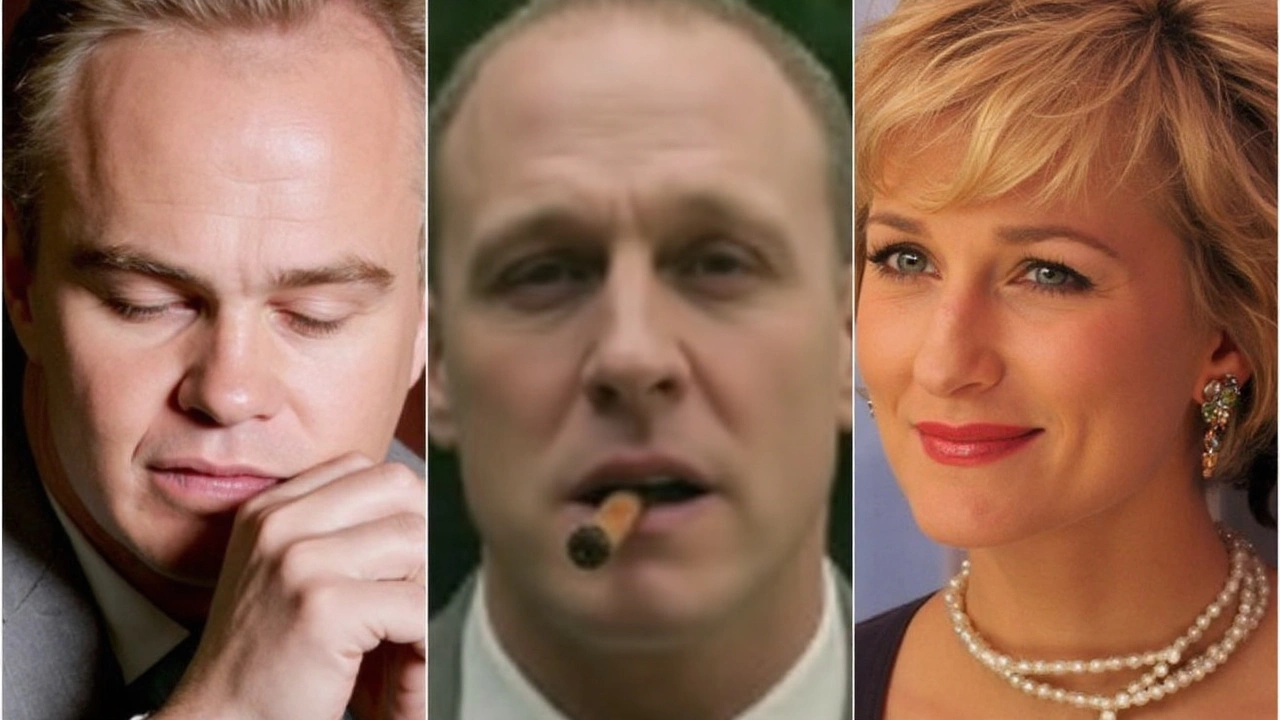
When great actors miss: why talent sometimes can’t save the role
Big-name stars aren’t bulletproof. Even icons have put out awful performances that make you double-check the credits and wonder what went on behind the scenes. It’s rarely one thing. Miscasting, sloppy scripts, rushed edits, heavy studio notes, or a director chasing the wrong tone can sink anyone. And when it goes wrong with a superstar, it goes very wrong—louder buzz, bigger expectations, sharper backlash.
Look across genres and you see clear patterns. Biopics punished by stiff makeup and heavy accents. Comedies that mistake shouting for timing. Franchise blockbusters where the actor is just one cog in a very noisy machine. Then there are the paycheck detours—quick turns in projects that never fit the performer to begin with. Here are 17 misfires from genuinely great actors that show how even the best can stumble.
17 misfires by great actors
Al Pacino – Jack and Jill (2011): Pacino plays “Pacino,” then performs a goofy coffee jingle inside an Adam Sandler comedy built on broad gags. He leans into the bit, but the sketchy tone and cheap laughs make a legend look stranded.
George Clooney – Batman & Robin (1997): The movie is camp dialed to neon, and Clooney’s laid-back charm never becomes a character. He’s stuck smirking through ice puns, toyetic action, and a script that treats Batman like a billboard.
Robert De Niro – Dirty Grandpa (2016): De Niro can still go deep, but here he goes crude. The film asks him to outparty his grandson and outgrope every other gag. He commits—no question—but the material is paper-thin and often joyless.
Robert De Niro – Godsend (2004): A grief-and-cloning thriller that tries to be chilling and thoughtful, then delivers neither. De Niro’s intense scientist feels oddly stiff, trapped by a script that reduces big ideas to hokey twists.
Robert De Niro – New Year’s Eve (2011): The ensemble is massive, the stories are syrupy, and De Niro’s role—an ailing father longing for midnight—gives him little to do but wait for the ball to drop. You can feel the film trying to move you, not earn it.
Nicolas Cage – The Wicker Man (2006): A cult remake turned unintentional comedy. Cage goes big—then bigger—while the movie can’t decide if it’s eerie or absurd. Meme history was made, just not the kind anyone set out to make.
Halle Berry – Catwoman (2004): Berry is a force, but the movie around her is chaos—sketchy CGI, clunky dialogue, and a costume that screams 2004. She gamely plays along, stuck in a superhero film that forgot the hero part.
Naomi Watts – Diana (2013): Playing Princess Diana should be career gold, but this portrait leans into a narrow, soap-lite take. Watts tries to find the person in the icon; the script traps her in clichés.
Leonardo DiCaprio – J. Edgar (2011): A heavyweight team, a meaty subject, and a lead buried under stiff makeup and a strained accent. DiCaprio’s intensity turns fussy; the performance never settles into a living, breathing person.
Meryl Streep – The House of the Spirits (1993): A prestige package with a misjudged approach to accent work and tone. Streep’s craft is undeniable, but the film’s choices flatten characters and strain credibility across generations.
Denzel Washington – Virtuosity (1995): A charismatic star meets mid-’90s cyber-thriller cheese. Washington does what he can as the straight man, yet the movie’s neon concept and clunky tech-speak leave him playing catch-up to a cartoon.
Anthony Hopkins – Transformers: The Last Knight (2017): Hopkins throws dry wit at a wall of lore, robots, and exploding exposition. Even his regal bite can’t cut through a plot that plays like a highlight reel of noise.
Tom Hanks – The Ladykillers (2004): Hanks tries a loopy, old-timey villain in a Coen Brothers remake that never finds its rhythm. The accent is mannered, the laughs are thin, and the charm curdles into affectation.
Jennifer Lawrence – Serena (2014): Reuniting with Bradley Cooper should work, but this period drama drifts between melodrama and fog. Lawrence brings intensity, yet the story gives her nowhere focused to take it.
Russell Crowe – Les Misérables (2012): A committed turn hampered by limited vocal range and a stiff physicality. Crowe’s Javert is earnest but flat, and in a sung-through musical, that gap becomes the show.
Jared Leto – Suicide Squad (2016): A legendary comic-book role, buried under grillz, tattoos, and hype. Leto’s choices feel grafted on rather than lived in, and the movie sidelines him, magnifying every misstep.
Eddie Redmayne – Jupiter Ascending (2015): Whispers, then shrieks. The performance swings from underplayed to operatic without a steady middle, mirroring a film that can’t decide if it’s space opera or self-parody.
What connects these? Start with tone. Clooney’s Batman wanted breezy camp in a world that needed gravity. Hanks chased a cartoon that never got funny. Redmayne leaned into space-goth while the film veered into slapstick. When the tone is off, performances either disappear or stick out at odd angles.
Biopics are another trap. DiCaprio in J. Edgar and Watts in Diana wrestle with prosthetics, iconic mannerisms, and scripts that play it safe. If the writing dodges the messy contradictions that make a person interesting, all that remains is posture and makeup. That’s how a detail-perfect performance can feel hollow.
Franchises add scale but remove air. Hopkins in a Transformers sequel has to sell ancient myths between blasts and quips. Leto’s Joker got hyped into a corner, then cut to pieces in the edit. You can feel the machine whirring while the character gets squeezed.
Comedy, meanwhile, is merciless. Pacino’s cameo in Jack and Jill and De Niro’s detour in Dirty Grandpa try to weaponize image against type. When the script isn’t sharp, the actor looks silly instead of self-aware. Berry’s Catwoman aimed for playful, landed on chaotic.
And sometimes it’s simple: the movie just isn’t there. Serena never chooses a pulse. Godsend reduces big ethical questions to a late-night cable twist. Diana mistakes attention to tabloid beats for insight. Great actors can do a lot, but they can’t fix the foundation.
It’s worth noting how often these performers bounced back. De Niro returned to collaborators who know how to use him. Clooney laughed off the cowl and pivoted to sharp, adult dramas. Berry leaned into muscular genre work. The lesson isn’t that stars fail; it’s that careers are long, and risk cuts both ways.
